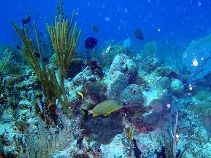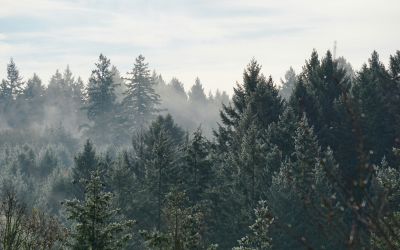The protection of natural resources can coexist alongside tourism
The task of protecting biodiversity can coexist with tourism, said Mexico’s Minister of Tourism, Gloria Guevara.

The task of protecting biodiversity can coexist with tourism, said Mexico's Minister of Tourism, Gloria Guevara.
On Monday, at a 16th Conference of Parties (COP16) side event, organised jointly by the Ministry of Tourism of Mexico and the UN World Tourism Organisation (UNWTO), Guevara stressed that tourism can be ecofriendly.
"Our natural resources can and should coexist with tourism," said Guevara, addressing participants at the gathering.
Guevara pointed to Mexico as a country whose rich natural resources sustained a large part of its tourism activity, representing "nine per cent of Mexico's GDP and over seven million direct and indirect jobs".
The event, Tourism's response to climate change: What's next? outlined the progress made by the tourism sector to mitigate its impact and adapt to today's biggest challenges.
It presented the work completed so far by the public and private sectors to mitigate greenhouse gas emissions, promote adaptation in tourism businesses and destinations, as well as invest in new technologies and support developing countries through financing.
Some of the issues highlighted were the impacts of climate change such as rising sea levels and the destruction of coral reefs and during her speech Guevara stressed the need to for a balanced approach that took in all concerns, economic and ecological.
"There must be no delay in protecting this biological diversity, for its own sake, but also to maintain tourism's socio-economic contribution," Guevara said.
Also present at the event was UNWTO Secretary-General, Taleb Rifai, who cited the importance of taking a global approach towards tourism, aviation and climate change, when he said: "Developing destinations, highly dependent on international tourism for income and jobs, would be doubly affected, given their distance to major markets and limited domestic markets, if exposed to increasingly stringent emissions policy on aviation. We are particularly concerned about the potential duplication of taxation on emissions on travel, namely on air transport".
During the event UNWTO highlighted its work with the United Nations Environment Programme (UNEP) in addressing aviation emissions at the global level.
UNEP, as part of its Climate Neutral Network Initiative, has previously stated that climate change mitigation initiatives often have to mediate between conflicting objectives, such as the need to reduce long-haul emissions whilst not adversely impacting tourism's role in sustainable development and poverty alleviation.
Mitigation in the tourism sector can also be achieved by reducing energy use, UNEP indicated. One example of this is through increasing the use of renewable energy, using carbon offsetting strategies, as well as changes in business practices.
In addition, market mechanisms, incentives, taxes and voluntary initiatives can be used to provide an integrated approach to reducing carbon emissions. The Climate Neural Network Initiative predicted that those who embrace mitigation and become pro-active in addressing climate change will find new business opportunities.
Future growth is expected in demand for products such as solar photovoltaic panelling and wind turbines, as society and tourism switch to low carbon products. Tourism is estimated to contribute around five per cent of global CO2 emissions. 40 per cent of all tourism emissions are from air transport, 32 per cent from car transport and 21 per cent from accommodation.
The co-sponsored event represented a step towards the UNWTO commitment that tourism will be at the leading edge of the global response to climate change. It is part of a call for the entire tourism sector to face climate change as one of the greatest challenges to sustainable development in the 21st century.
Author: Leroy Robinson | Climate Change
Image: Daquella Manera | Flickr






